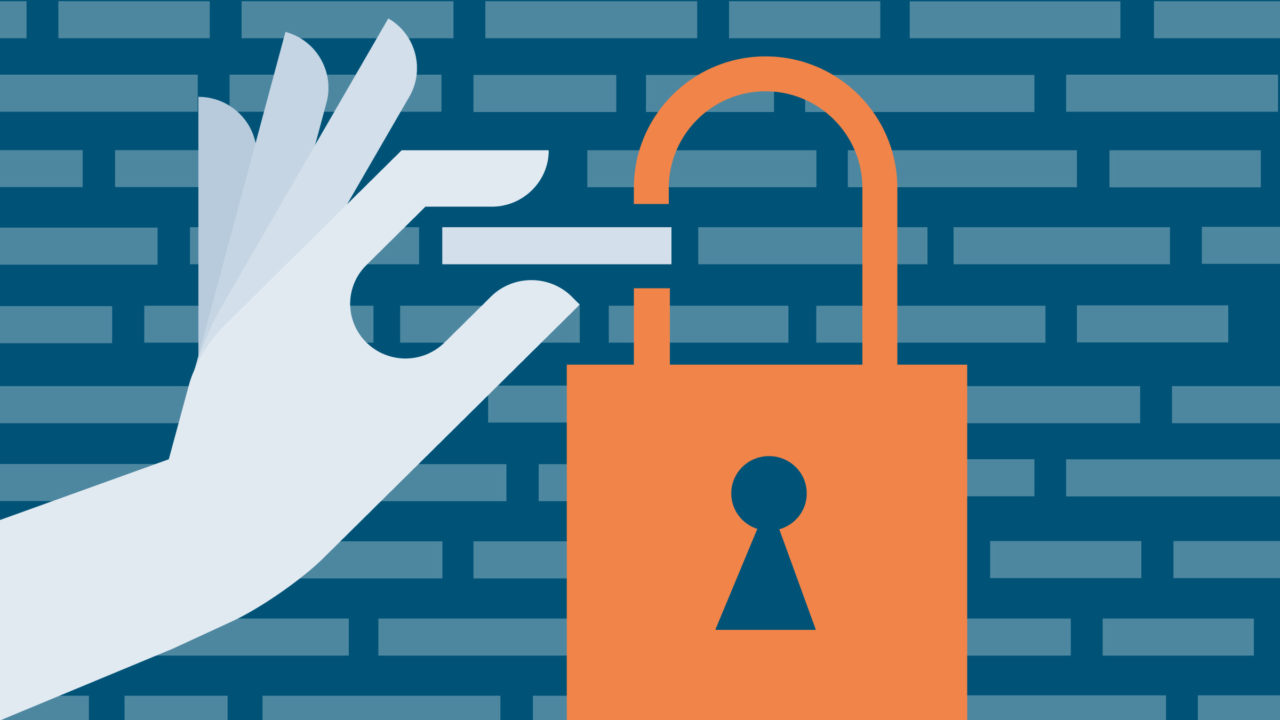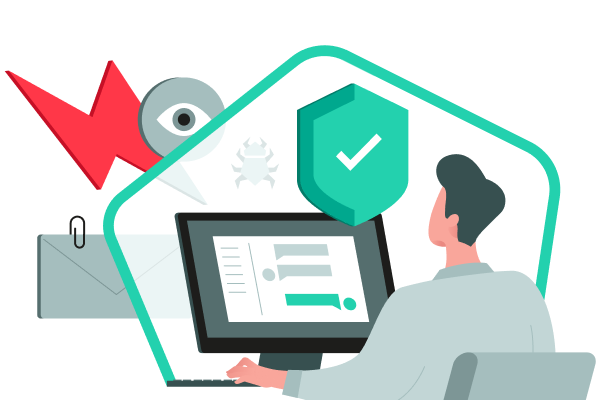
The right to privacy has long been important for individuals and organizations. However, as more data is digitized and shared online, data privacy is becoming an increasing concern. When individuals talk about digital privacy, though, they frequently refer to it in terms of its relationship to Internet usage. There’s actually a lot more to it than that.
Information may now be found indefinitely thanks to digitization. In 1995, just 1% of the world’s population had access to the internet. With over 4 billion internet users globally today, that number has risen to 57%. When you touch anything online—whether it’s asking a question on Google, sending an email, looking up a new restaurant in your area, or communicating with a chatbot online—you’re creating a digital fingerprint. For decades, people have been sending emails and messages without fully understanding the digital footprint they leave behind, even after the message has been removed.
When you post something on social media or browse the web, you’re freely giving your personal information to social media and search engine businesses. All of your information is saved on the site’s servers when you create social media profiles or post to social media as part of zero-party data.
Privacy in Digital World

Many believe that the response to large data pooling, like that found on social media platforms, should be to strengthen our right to privacy so that we all have more control over our personal data. Individuals should have the ability to control what areas of their personal domain are accessible to others, as well as the manner, span, and timing of such exposure.
It’s difficult to talk about consent to privacy violations in a world where data is handled in so many different ways, some of which cannot be predicted at the time consent is given. Furthermore, it seems the person who reads terms of service on apps and online software is a rare being, even if those terms of service are written clearly.
If that wasn’t enough, there’s also the psychological phenomena known as the “privacy paradox,” which refers to the disconnect between what people say (I’m really concerned about my privacy) and what they actually do (A free pizza? That’s fantastic! Where do I enter my name and email address?).
But it appears as if younger generations have more awareness about privacy concerns than the generations who did not grow up with the internet and cell phones. According to a survey, 61% of those under the age of 45 are concerned about their privacy.
Protection of Privacy in Digital World

We tend to deal with concerns of regulating the transmission or administration of information only after it has been obtained in the context of data anonymization, security, and encryption in the privacy debate.
There are a few ways to protect your privacy in the digital world:
- Protect all your gadgets with passwords
- Run an antivirus regularly to keep your computer and other devices virus-free
- Turn off third-party cookies and keep your browser history private
- Switch to search engines that do not keep tabs on your browser habits
- Do not share personal information on social media
- Do not give extra information on the internet
- Beware of email or direct message scams that fish for information
- Only install software and apps from trustworthy sources
- Use only secure Wi-Fi connections
Information Privacy in the Digital Context

Information privacy, in the context of digital privacy, refers to the belief that individuals should have a choice in how their digital data is gathered and utilized. This is especially true when dealing with personally-identifying information.
Personal information privacy refers to the protection of personal information maintained on computer systems. Medical records, financial data, criminal records, political records, business-related information, and website data are all examples of personal information that users will want kept private.
You can protect the privacy of your information through a variety of methods, including encryption, authentication, and data masking, all of which aim to guarantee that information is only accessible to those who have been granted permission. These safeguards are intended to prevent data mining and the unlawful use of personal data, both of which are prohibited in many areas of the globe.
Digital Privacy as a Human Right

Both governments and large organizations have become data miners in the previous decade, gathering data on every aspect of our actions, behavior, and lifestyle. In April 2021, 4.72 billion individuals were using the internet worldwide, accounting for more than 60% of the global population. Such an extensive gathering of data, along with the intrinsic benefits of modern technology, has generated the cynical notion that privacy is gone, and we should just accept it. However, in this digital age, a few facets of the right to privacy have become particularly significant. As you can see from this article, not only is privacy still alive and well, but it also merits the attention it deserves as the most crucial of all human rights in this digital era.
Ways to Maintain Digital Privacy

Though it seems like there’s no way to get around leaving a digital footprint to protect your privacy, there are actually a number of things you can do.
- Your information can be used to monitor you as long as your Internet usage can be linked to your unique IP address. Avoid connecting to a Virtual Private Network (VPN) and concealing your IP address.
- Many of us are concerned about personal data being lost during the transfer of messages and files between computers. Fortunately, there are ways to keep this information concealed. Pretty Good Privacy (PGP) software is one such technology that exists to raise privacy awareness and make the task of encrypting and signing data files simple.
- Update the default privacy settings on your social media profiles. It’s a good idea to log off sites like Facebook and Twitter whenever you’re not using them, in addition to being aware of and changing your social media privacy settings.
Importance of Digital Privacy

Digital privacy is crucial for a variety of reasons. People invest a lot of money, time, and effort into safeguarding their sensitive data and they want to know that your organization cares about their privacy.
At the organizational level, the primary goal of digital privacy is to avoid any financial loss. But you must also secure your data if you wish to comply with regulations and satisfy your consumers’ expectations.
With so much personal information freely given by Internet users, cyber thieves may find it easy to carry out their unlawful operations. And we’ve seen this time and time again with data breaches at big box stores, credit card companies, and even hospitals. We must educate ourselves on the importance of digital privacy, the dangers of oversharing, and how to protect ourselves against cyber criminals so we can protect our businesses and our customers.
Some malware hijacks user browsers and directs them to the malware’s preferred websites, or even changes their browser’s default homepage to the malware’s site. To be clear, we must be cautious about where we click.
• Avoid suspected free software downloads since they are frequently infected with commercial adware.
• Never open attachments in emails from people you don’t know.
• Do not open attachments in emails that include unclear or unexpected text, even if the sender is someone you know and trust.
• Do not click on pop-up window buttons that ask us to shut the window. To close the box, click the close ‘X’ in the corner.
Steps to be Taken for Digital Privacy

In the future, personal data will have to be treated as a separate market under rules controlling commercial competition. The concentration of personal data held by a single organization will be scrutinized by antitrust authorities. Similarly, election propaganda rules will have to govern what forms of personal information may or may not be used in campaigns, as well as establish if there are certain strategies with such strong persuasive and manipulative abilities that they should be prohibited.
Moreover, we must comprehend the boundaries of privacy as a kind of control. It is obvious that improving our digital literacy and learning how to cope with the situation is the ideal strategy. Perhaps the solution is to start with clearer national or international regulation that defines acceptable usage of personal information and requires companies to acquire the approval of the individual only when the intended use does not fit into that category.
Privacy is not extinct. Indeed, it has become our fundamental right, and we must safeguard it. Without individual privacy, a person’s existence has no value, and without privacy, democracy has no significance.
